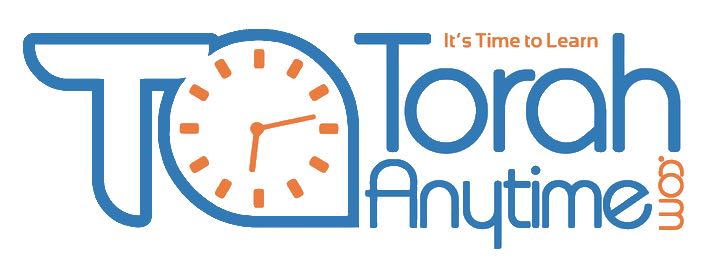Back to School...?
/“It has been noted that the Jewish holidays are either early or late, but never on time.”
What people mean by this, I suppose, is that since school usually begins around the beginning of September, one wants as much time as possible for our children to prepare for the holidays. When Rosh Hashana comes out in early September, teachers know it is practically impossible to teach the children all about selichos and Rosh Hashana and Aseres Yemei Tshuva and Yom Kippur and Sukkos and Simchas Torah in two weeks! So what we really mean is that we want the holiday to come on time, according to our school calendars. So in the ideal year Rosh Chodesh Elul should correspond with September first (or perhaps Labor Day in the United States).
Starting the new school year does have a bit of the Elul feel to it. Since Elul is the last month of the year, we all try to put our lives in order before the Yom Hadin (Judgment Day). We may not have kept up all of the kabalos that we made last Elul and perhaps we have slipped in other areas of our life. But come Elul we feel that we can start now to put our lives back into order and go into the New Year with a fresh start.
The same is true for our children. Perhaps they haven't always been the best students; maybe they fell back in certain subjects and performed below their capabilities. But come the new school year, most children feel that they have the opportunity to make a fresh start. They have their new books freshly covered. Their new school supplies in their bags and a determination that this year will be different. They will be ideal students this year.
It reminds me on a certain level of the famous vort by the Satmer Rebbe. The posuk in parshas Aikev describes Eretz Yisroel as a land where the eyes of Hashem is upon it "mereshis hashana ad acharis shana," "from the beginning of the year until the end of a year." Why, asked the Satmer Rebbe, does it switch from "the year" to "a year"? The answer he gives is that every year we tell ourselves that this is going to be the year, but somehow it just ends up being a year, just another average year instead of the exceptional one that we had anticipated. So how can we as parents help our children succeed in school this year. How can we make this year "the year" for them?
Let me deal for a moment with another problem and perhaps this will provide the answer. As I write this article there are 150 girls in Yerushalayim who have no place in a ninth grade for this coming school year. What they will do and how they will manage is a difficult question. But the frustration and humiliation that the girls and their families are facing is beyond description. One parent wrote a poem describing her feelings, which brought tears to my eyes when I read it.
ONLY JUST THIRTEEN
By Tzvia Hirsch
She's sitting with her hands clenched
Her knuckles turning white
Worrying if she will manage
To handle it all right
Her stomach's turned in knots
She hasn't slept in days
What could possibly inspire
This terror driven craze?
You see, she's waiting for her interview
Be there promptly, 2:15
It's hard for an eighth grader
Who's only just thirteen
For eight years now she's gone to school
Tried to do her best
She never was exceptional
A girl, like all the rest
She got up every morning
Like every other girl
Her parents always loved her
Their precious little pearl
But now she sits here worrying
She knows what this day means
It's hard for an eighth grader
Who's only just thirteen
You see, there are a lot of girls out there
And there aren't enough places
How will they pick the lucky ones
From this frightened sea of faces?
Everyone knows that there's a problem
And someone really oughta
Figure out a way to help
My tortured little daughter
So worried for her future
For there is no in between
It's hard for an eighth grader
Who's only just thirteen
Her marks are not quite high enough
Her clothes may not pass inspection
Her family are foreigners
They haven't got protection
For thousands of nice families
Have dreaded this for years
How many heartfelt tefillos
How many heartfelt tears?
So now she sits and waits to find
If she's the milk or she's the cream
It's hard for an eighth grader
Who's only just thirteen
Her turn has come at last
Into the room she's led
She's frightened the wrong answers
Will pop into her head
There's no way for her to study
For this most important test
She only has five minutes
To stand out from the rest
The lady looks her up and down
She knows what that look means
It's hard for an eighth grader
Who's only just thirteen
With a flick of a small pencil
Her future they'll decide
Will she be accepted
And be allowed inside?
Than a high school education
Will be awarded as her prize
Oh what a success she'll be
In everybody's eyes
Or will she be rejected
Going nowhere so it seems
It's hard for an eighth grader
Who's only just thirteen
Finally it's September
Bookbags have been bought
New supplies and uniforms
All is as it ought
They're under no illusions
High school will not be easy
Reports and tests will change these girls
Who once were bright and breezy
But here and there a girl sits home
In a world that's turned so mean
It's hard to have no school you see,
When you're only just fourteen
The heart wrenching experience for these parents and those who want to help them is hard to imagine. And people ask me, why doesn't somebody do something? Who are the villains responsible for this situation?
The truth is, I don't believe it is anyone's fault. Boruch Hashem, the religious community is growing by leaps and bounds, kein yirbu. If families were blessed with six, seven or eight children, then our educational infrastructure needs to increase six or seven fold to keep up with the natural demographic growth. And it isn't. I have spoken with the heads of the seminaries and can assure you that they are all honest, concerned individuals who are trying the best that they can. But if there are already fifty girls in a class and those girls are suffering from a lack of attention because of the large class size and the facilities are strained beyond capacity, what can they do? It's easy to point fingers and demand that someone do something, but whom?
Which brings me back to my original point. A menahel in a cheder in Yerushalayim told a friend of mine recently that it is common to see fathers who are makpid to perform the millah on their sons themselves. They don't want to merely appoint a mohel as a shaliach to perform this important mitzvah; they want to do it themselves. However, he noted, I have never had a parent offer to take over their son's class for a day. When it comes to chinuch, they are suddenly quite content to leave the important mitzvah of talmud torah to others.
Now obviously no one expects parents to walk into the classroom and take it over. Rather he was trying to point out the disinterest that many parents display to their own children's educational needs. "Someone should do something" is the clarion call. Someone; but not me.
I know a wonderful couple that moved here from the United States, Dr. and Mrs Jay Sultan. Mrs. Sultan had been involved in chinuch in America and she saw the problem of lack of space. She also felt that there was a need for a girls high school that could provide a warm atmosphere that many girls simply need in order to succeed. So she and her husband decided to open a girl's Bais Yaakov high school in Beit Shemesh, and called it Ko Tomar. Over the year that they have been running it they have encountered enormous difficulties including government hostility and tremendous financial pressures. Nonetheless they have plowed ahead and for this coming year they are filled beyond capacity.
I spoke with Dr. Sultan recently and he described to me the pressures that he is encountering from parents who want him to accept their children, even though there isn't room for another desk in the apartments that serve as the school. He said something that was very powerful to me. "I told one of these parents, why don't you start your own school? I am no more qualified then you are, but I saw a need and I addressed it."
Parents were apparently shocked by this suggestion. "Me? I'm nobody!" Somebody should do something about this. The Alter of Novardek used to say, "I never asked myself whether or not I could do something. I asked myself if something should be done, and then I knew that Hashem would give me the ability to do it." If people see there is a problem then we should feel an achrayis to get involved and raise the money or do whatever is necessary to solve the situation.
But for now let's focus on something more fundamental. If we want our children to succeed in school then we should remember that the school is merely our shaliach; the ultimate responsibility lies with us. One rebbe complained that he only heard from parents when they were upset. A small note of thanks when things were going well, or even to discuss their child's progress was never forthcoming. There are parents who have never met their children's teachers because they are always too busy to attend class meetings or parent-teacher conferences.
Let us resolve for this coming year to work hand in hand with our children's teachers and rebbeim so that we can make this year the school year for our children.
[This article originally appeared on Chazaq.org]





